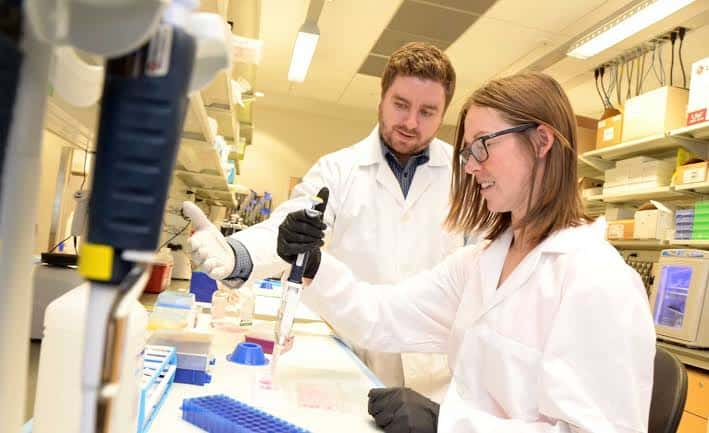Share this Post
Medicine is one of the most competitive courses to study in Nigeria, as dictated by numerous social, economic, and educational factors. Each year, thousands of students chase the dream to wear a white coat and a stethoscope-a symbol showing the prestige that comes with making a difference in life. The fierce competition, on the other side, leaves would-be professionals reeling with pressures beyond academics.
Nigeria’s fast-growing population contributes greatly to the demand for healthcare services. With over 200 million people, the pressure to have adequate health care in the country has created an ever-increasing need for skilled doctors. Health challenges range from malaria and tuberculosis to diabetes and cardiovascular diseases, thus amplifying the demand for medical professionals who can address these issues.
Besides that, there is the limited number of medical schools in Nigeria, which has only a few accredited institutions to admit students to the study of medicine. Because of this limitation, there is heavy competition for entrance, with many seeking a limited number of openings yearly. This is coupled with a negative impact on quality education, characterized by congested classrooms and inadequate resources.
The educational pathway toward undertaking medicine as a course in colleges has all manners of land mines. Aspiring students need to perform excellently in national-type examinations like the WASSCE, JAMB etc. Even this assures a stream of the very best candidates’ admission into college. Such is the learning pack that requires upwards of seven very taxing years to learn and needs endless hours of unbroken application. Also of note is a high dropout in such professional schools because indeed only the finest brains thrive.
The prestige of being a doctor in Nigeria cannot be overemphasized. Medicine is a career in Nigeria that has great cultural meaning, often perceived as the zenith of academic and professional attainment. Parents and society have great emphasis on the profession, encouraging young Nigerians to pursue the profession. This societal respect and recognition accorded to the title “doctor” add to the reasons why people would want to take it as their career choice despite the challenges.
Another critical determinant of the competitiveness of medicine is economic incentives. Physicians are among the best-paid professionals in the country, and there is considerable opportunity for growth within the field, including through medical tourism and international practice. Financial security in this respect makes the profession highly coveted, considering a job opportunity that may not be available in any other field in the country.
Government policies have also been responsible for medicine’s competitiveness. Quota systems were put in place to provide this cadre with subsidized education, making their study of medicine supposedly easier. In addition, the global opportunities available to Nigerian doctors are many. As health professionals are in global demand, most Nigerian doctors embark on very lucrative careers overseas; this is one reason the course has become so appealing.
The lack of career pathways other than medicine makes this course a default choice for many students. In a job market with few options, a medical career offers security and prestige. This fact, added to the influence of global trends and the demand for healthcare professionals all over the world, ensures that medicine is one of the top courses that students will apply for.
The rise of female applicants has also added a new dimension to the competition. Traditionally a male-dominated field, medicine in Nigeria is seeing a great rise in female participants. This shift not only challenges stereotypes but also heightens the overall competition for available slots.
Yet, many aspiring doctors are not deterred by this fact. Expensive private medical institutions are gaining popularity, though slowly, offering an alternative to the hugely overcrowded public institutions. Gaps in education are also being bridged with advances in technology as resources such as online learning and research tools become more accessible.
Successful Nigerian doctors have their stories of inspiration, and scores of these young people aspire to this high demanding but promising career. It is either a local practice or making waves in the global community; these professionals stand as an example of resolute determination towards success in medical fields.
It is for this reason that medicine in Nigeria remains very competitive due to a number of factors such as population increase, limited education opportunities, societal expectations, and, of course, economic benefits. Though the process might be burdensome, for many, becoming a doctor makes it all worthwhile.
Frequently Asked Questions
1. Why is medicine so competitive in Nigeria?
The competitiveness of medicine in Nigeria is high in demand, limited institutions, stringent academic requirements, and the appeal of the field to society and economy alike.
2. How can aspiring students improve their chances of admissions?
Students should have good grades from WASSCE and JAMB, engage in science-related extracurricular activities, and prepare for tough interviews.
Scholarships
3. Are there scholarships for medical students in Nigeria?
Yes, there are government and private scholarships to assist medical students in paying their tuition and related costs.
4.Why is the number of medical schools in Nigeria limited?
These are constrained by infrastructure challenges, resource constraints, and issues of accreditation.
5. How is technology changing the face of medical education in Nigeria?
Technology is improving medical education through online courses, virtual labs, and access to global research that enhance student learning.





